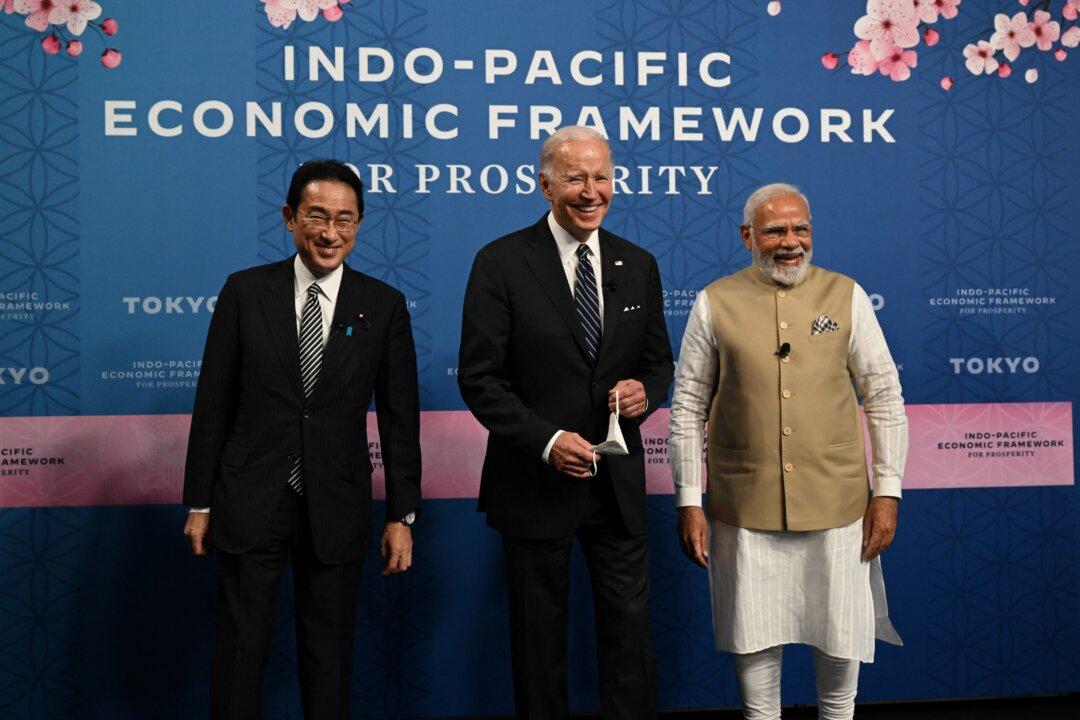President Joe Biden announced the Indo-Pacific Economic Framework (IPEF) for “expanding U.S. economic leadership” in the Indo-Pacific on May 23 in Tokyo with a dozen others including the Quad partners, Japan, Australia, and India, that have traditionally kept out of China’s Belt and Road Initiative—the regime’s trillion-dollar infrastructure investment program aimed at bolstering Beijing’s global economic and political clout.
“IPEF will strengthen our ties in this critical region to define the coming decades for technological innovation and the global economy,” the White House said in a statement on the day of the announcement.





